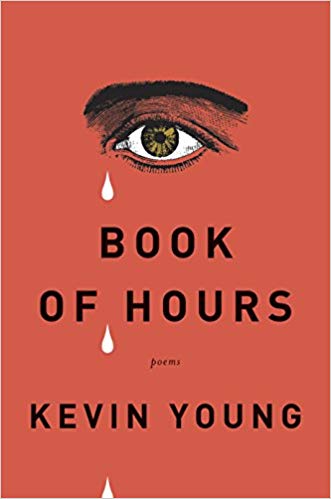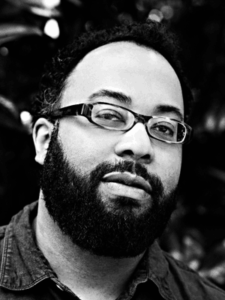Poet Kevin Young’s collection “Book of Hours” features poems about the death of his late father interspersed with poems about the birth of his son. The poems are reflections on these seminal events that so dramatically influenced the lens through which Young looks at the world. In an interview with Terry Gross for NPR, Young said, “It was a way of just writing about what had happened, and also the way that the cycle of life informed my life, from death to birth to…a kind of rebirth that I felt afterward.”
Young began writing the poems in the collection a few years after he lost his late father in a hunting accident in 2004. Ten years later, he published “Book of Hours.” The poems track Young’s journey from the moment he found out his father was gone to the strange experience of resuming normal life while carrying the loss with him, to welcoming a son into the world two years after the tragedy.
 Young’s poem “Charity” is about the dreary day he went to pick up his father’s dry cleaning in the wake of his unexpected death. Not sure which dry cleaner his father’s clothes were at, he drove from one dry cleaning business to the next, only to be told “Nothing here”
Young’s poem “Charity” is about the dreary day he went to pick up his father’s dry cleaning in the wake of his unexpected death. Not sure which dry cleaner his father’s clothes were at, he drove from one dry cleaning business to the next, only to be told “Nothing here”
One place none
of your clothes,
just stares as if no oneever dies, as if you
are naked somewhere
& I suppose you are.
When he finally finds the right dry cleaner (“the last place knows exactly what I mean”), Young writes of the kindness of the people there: the man who expressed his condolences, the woman who mentioned to him how funny his father had been, the business owner who declined payment for the clothes.
One man saying sorry,
older lady
in the back saying how funny
you were, how you joked
with her weekly.
Sorry — & a fellow black man hands
your clothes back for free,
The poet then drives his father’s clothes to Goodwill to donates them; his father’s clothes will live on and become part of the fabric of another person’s life:
open late — to live on
another body
& day.
Young’s poems about his father’s death have a raw immediacy to them. You get the sense that he is not recollecting so much as reliving experiences of his father and of his grief. “Charity” draws the reader into the emotionally fraught world of picking up dry cleaning while in acute grief with deft expertise and raw honesty. Kevin Young’s masterful works about the sometimes seemingly mundane aspects of bereavement are written with musicality and an immense amount of heart.

 A Poet Picks Up His Late Father’s Dry Cleaning
A Poet Picks Up His Late Father’s Dry Cleaning




 “Help Me, Helen”
“Help Me, Helen”
 Recovering Cremation Remains After the Los Angeles Fires
Recovering Cremation Remains After the Los Angeles Fires
 “As Tears Go By” by Marianne Faithfull
“As Tears Go By” by Marianne Faithfull














